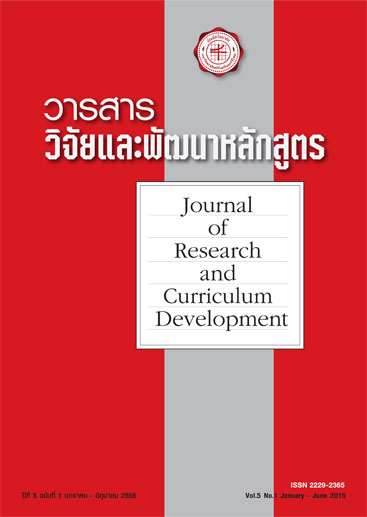ตัวแปรที่ส่งผลต่อความเป็นชุมชนแห่งการเรียนรู้ทางวิชาชีพของโรงเรียนขยายโอกาสทางการศึกษา ในภาคตะวันออกเฉียงเหนือ
Keywords:
ชุมชนแห่งการเรียนรู้ทางวิชาชีพ, ผู้นำทางวิชาการ, แรงจูงใจใฝ่สัมฤทธิ์, professional learning community, academic leadership, achievement motiveAbstract
บทคัดย่อไม่สมบูรณ์
Variables Affecting Professional Learning Communities in Opportunity Expansion Schools in Northeast Thailand
There are two major purposes for this dissertation: (1) to study the level of being a professional learning community and (2) to study variables affecting the level of being a professional learning community of opportunity expansion schools in the northeast region of Thailand. Of those opportunity expansion schools in the northeast region of Thailand, sixty opportunity expansion schools served as subjects in a study to investigate those two mentioned purposes. Data was collected from four questionnaires and two measuring tools: (1) a questionnaire for being a professional learning community, (2) a tool for measuring incentive and achievement, (3) a questionnaire for measuring work-responsibility, (4) a tool for measuring teacher-professional aptitude, (5) a questionnaire for assessing the adaptable leadership of school principals, and (6) a questionnaire assessing academic leadership of school principals. Data analysis, mean calculation, standard deviation, alterative coefficient and influence (impact) analysis were utilized to find the outcomes. The research findings indicated that (1) the level of being a professional learning community of the targeted subjects was high, (2) the variables affecting being a professional learning community were academic leadership of school principals and achievement motive, and these two elements explained the 60.30 percent variation of being a professional learning community, and (3) indirectly received influence from the adaptable leadership of school principals and work-responsibility through the academic leadership and achievement motive.





